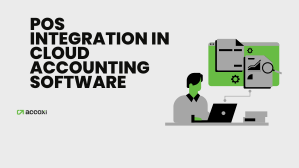

July 18, 2023

Accounting standards are the guidelines that companies and other organizations must follow when disclosing financial information. These rules regulate the terminology and practices that accountants must use, which facilitates the analysis of financial data.
Accounting financial statements are the fundamental tools used by management to communicate financial information and certain quantitative elements to the public. Accounting principles ensure that a company's financial statements are complete, consistent, and comparable, making it easier to examine and extrapolate information from them over time.
Accrual systems are essential accounting rules for accurately understanding a business's financial situation. They record transactions in the period they occur, regardless of the actual cash flows received. Accrual systems are widely used by large-scale organizations to calculate cash flow, revenues, and associated costs.
The principle of consistent accounting involves an organization adopting a specific method for reporting or documentation to make financial statements comparable across industries. However, this principle faces two issues: improper implementation when recording data and compiling reports, and the potential for switching between financial reporting methods to manipulate data. To address these issues, organizations must establish a set internal method and implement effective data management strategies.
An example of the consistency principle is that depreciation must be determined annually using the same depreciation method. It would be improper for a business to switch its depreciation methodology from one financial year to the next because doing so could distort the results.
The idea that expenses and liabilities should be recorded as soon as practically possible encourages a realistic attitude toward unforeseen occurrences. When a receipt is guaranteed, earnings and possessions are indicated. According to the conservative principle's lowest cost or market rule, inventory should be recorded at the lower end of its purchase price or current market value.
A firm should only record its assets, liabilities, and equity interests at the amount paid at the moment of acquisition, according to this theory. This principle is becoming less relevant as more accounting standards move toward valuing assets and liabilities at fair value.
For example, if we spend $20,000 for a car that is worth $25,000 in total. The corporation will use $20,000 as the actual amount paid when recording on the balance sheet even though the car has a value of $25,000.
This accounting theory calls for treating companies as separate financial and legal entities. As a result, the business entity's documented activities must be maintained apart from those of the owner and other entities. A sole proprietorship, limited liability partnership, or general partnership are examples of these.
This idea states that all expenses that are related to an income should be recorded at the same time. As a result, you record income from the sale of inventory items at the same time as you charge inventory to the cost of goods sold. The accrual basis of accounting is founded on this. The matching principle is not utilized in cash basis accounting.
Eg, every transaction a salesperson makes in January earns them a 5% commission, but they won't be paid out until February. This implies that the business will pay them $5 in February if they sell $100 worth of goods in January.
The concept of materiality in accounting means that all significant items must be fairly disclosed in the financial statements. The term "material items" refers to those elements whose presence or absence significantly alters how business information users make decisions.
For example, a customer who has missed a payment of Rs. 100 to a business with net assets of Rs. 5000 crores are viewed as irrelevant by the business. However, the corporation will be affected if the default sum is Rs. 200 crores.
The accounting principle dictates that a company must complete recent plans, meet financial obligations, and use existing assets indefinitely to avoid bankruptcy. Failure to adopt this principle increases the risk of liquidation and bankruptcy.
Business transactions should be recorded as currency, with non-quantifiable entities avoided. Transactions are converted into money before being recorded in financial accounts, ensuring measurable records in monetary terms.
The financial statement of an entity must include all relevant information to ensure clarity and understanding for the reader. Disclosure should focus on materially impacting events and non-quantifiable items. Businesses must also report existing accounting policies and any other changes.
For instance, a company routinely uses a car, which is completely operational. The car collides with a critically injured person in an accident. For driving carelessly, the corporation has been sued by the pedestrian. He'll probably win the lawsuit the following year.
The principle ensures the reliability of financial statements and business accounting records by presenting accurate, objective evidence, and transparent representations. This ensures that information is checked, reviewed, and verified, ensuring its accuracy and transparency for users.
This idea states that a company should present the outcomes of its operations over a set time frame. Although it may be the most obviously clear accounting principle of them all, the goal is to provide a uniform collection of comparable periods that are helpful for trend research.
A corporation may switch from reporting once per month to once every three months if there have been notable variations between various months.
This accrual method of accounting recognizes revenues when realized and earned, making it straightforward for customers to make payments. However, longer production periods can complicate revenue accounting, making it a standard industry principle.
A retail bookshop receives payment when a customer purchases a new book, and the business registers the sale. When the cashier scans the barcode, revenue recognition is initiated. When the buyer pays for their book, revenue recognition is finished.
The term “GAAP” stands for Generally Accepted Accounting Principles, and they are the established guidelines for financial reporting in the US. The term "IFRS" (International Financial Reporting Standards) is a set of globally recognized accounting standards that are utilized by most nations around the world.
How financial statements are produced is determined by these accounting principles. Information about your company can be easily gathered by investors, lenders, and auditors thanks to the common format. Financial statement presentation, assets, liabilities, equity, revenue, expenses, fair value, non-financial activities, and many other issues are covered by GAAP.
To maintain financial comparability between periods, accountants pledge to use the same standards throughout the reporting process from one period to the next. Accountants are required to thoroughly report and justify any new or modified standards in the financial statements' footnotes.
GAAP aims to improve financial information understanding, consistency, and comparability for businesses, ensuring accurate, consistent, and comparable financial accounts.
The introduction of IFRS promotes openness and confidence among companies that list their stock on major international financial exchanges. Investors would be less inclined to accept the financial statements and other information that corporations offered to them if such standards did not exist. We might observe fewer transactions and a weaker economy without such trust.
The purpose of IFRS is to keep the financial sector stable and transparent. Businesses and individual investors can use IFRS to know exactly what has been happening with a firm, which enables them to make informed financial decisions.
The financial statements' content and presentation can be decided upon with considerable latitude under IFRS criteria. The accountant makes the final decision. An honest and fair statement of the company's financial situation, financial performance, and cash flow is all that is required by IFRS.
Accounting rules are crucial because they facilitate precise financial data recording and legal compliance. Principles are precise sets of rules, whereas ideas are underlying presumptions that direct accounting principles. This is the major distinction between accounting principles and concepts.
Income, costs, assets, and liabilities are determined by accounting principles and ideas for financial reporting. These carefully crafted financial statements aid investors in the analysis of important data. It becomes simpler to compare various financial data. These guidelines promote system transparency and make it easier to see warning signs.
Accounting principles can assist in recording consistent, correct data by employing predetermined procedures. This makes it easier for stakeholders to compare financial performance over time and across other organizations.
For financial statements to be more meaningful, accounting principles are required. There is uniformity in the method of creating financial statements thanks to the application of these principles.
Consider switching to Accoxi, a powerful application that makes your accounting process simpler.


